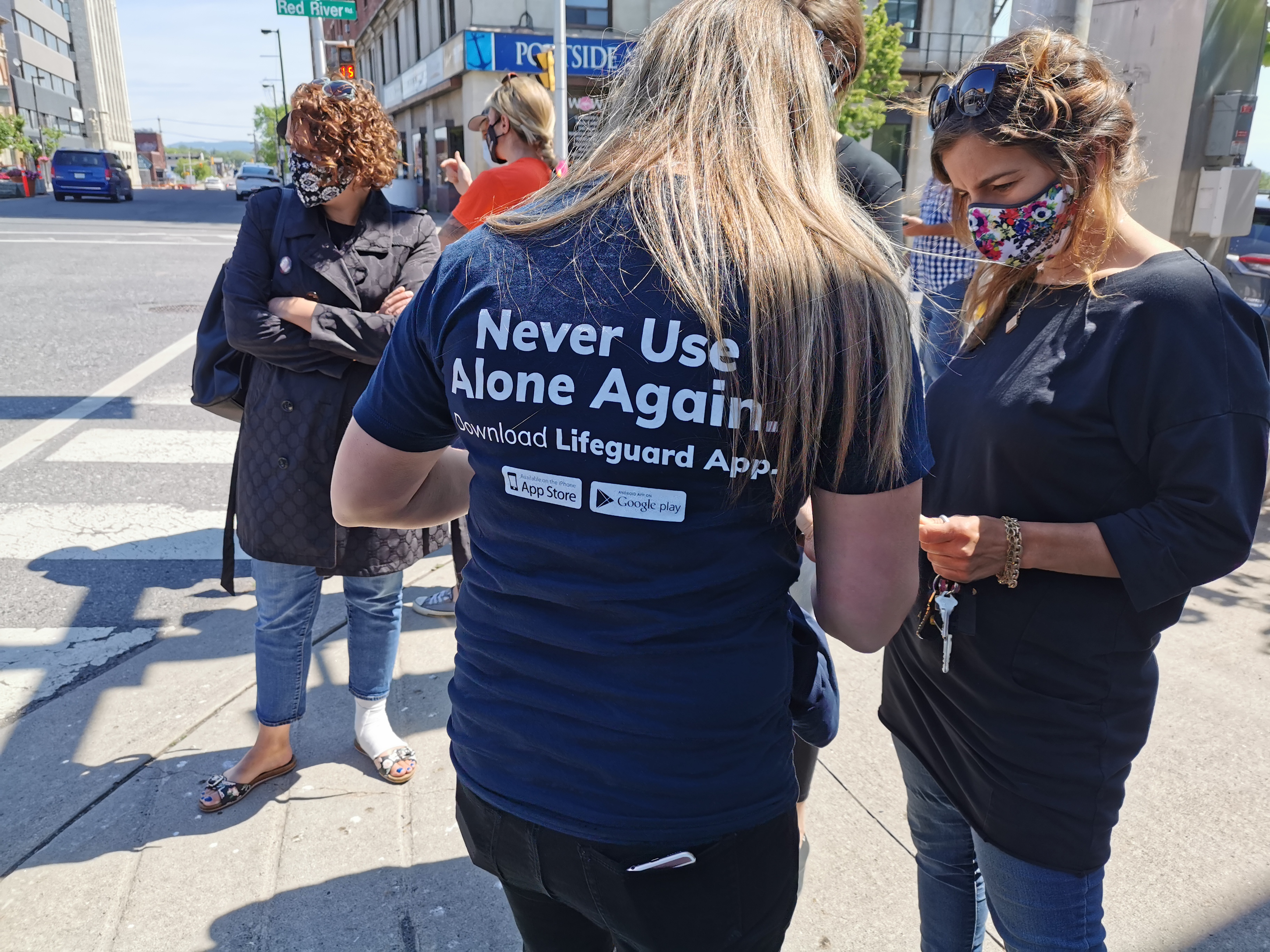Research in Action: Lakehead research project sheds light on illicit drug use
BY JULIO HELENO GOMES
A Lakehead University research project focusing on illicit drug use in Thunder Bay found that people are unaware of what drugs they’re putting in their bodies — a situation that can have drastic consequences.
“That’s really concerning when we are looking at the issue of people who are having accidental overdoses,” says Dr. Abigale Sprakes. “What it tells us is that there is an unsafe drug supply, in the sense that people are getting drugs that they believe are one thing and using them unaware of what they are using, and then are not able to make informed decisions about their use.”
Sprakes, an assistant professor in Lakehead’s school of Social Work, led the study along with graduate student Brooke Raynsford. Nearly 100 individuals replied to a survey and provided urine samples to determine the drugs in their system. The results showed 69-per-cent of participants had used drugs that they were unaware of, and of those substances, 43-per-cent were unknown opiates, such as fentanyl, and 40-per-cent were unknown benzodiazepines, a type of sedative used to treat anxiety and panic attacks.
“To have unknown opiates like fentanyl and benzodiazepines in their system indicates an unsafe drug supply in Thunder Bay and an increased risk of overdose,” Sprakes says.
Along with learning what substances people were taking, the researchers also asked about a person’s history of drug overdose, of using alone, and how they utilized harm reduction services. Nearly two-thirds of participants reported using alone and 43-per-cent reported overdosing in the last six months. The combination of unsafe supply, using alone, and a history of overdose increases the risk of a future overdose, Sprakes notes.
Raynsford’s role was to input the survey results, identify trends, and break down demographic information as well as review relevant literature. This was part of her Master in social work studies and was similar to what she’s been doing with other groups.
“I was surprised by the ways in which the project would be able to guide and inform the work of the Thunder Bay Drug Strategy and other community agencies,” says Raynsford, a registered social worker. “Although not directly linked to the study results, the main conclusion I drew was the importance of representing the voices of individuals accessing services, especially in the harm reduction field.”
With the support of the Canadian Centre on Substance Use and Addiction, this study is part of a nation-wide initiative. In Thunder Bay, the district health unit has reported a spike in paramedic calls regarding opiate overdoses, as well as increasing opioid-related emergency department visits and hospitalizations. Deaths have risen steadily over the last four years, including at least 80 in 2021.
Sprakes performed this research in partnership with NorWest Community Health Centres, whose staff set up contact with clients and helped develop the questionnaire. The issue is important in light of the surge of drug overdoses and trying to understand why people use substances alone, says NWCHC chief executive officer Juanita Lawson.
“If you talk to anyone working in the field of harm reduction, it’s very clear that the use of opiates and opiate-related deaths – in our region and across Canada – continues to be a crisis,” Lawson says. “This study helps us understand some of the work that needs to happen with individuals who use substances to increase awareness and ultimately reduce the deaths that are taking place when individuals use substances alone.
“The results of this study validate the important work taking place in our community to decrease stigma and create space to talk about mental health and addictions,” Lawson adds.
Raynsford, who spent four years as a summer student with the Thunder Bay Drug Strategy and the Crime Prevention Council, hopes this research will benefit the community “by providing clear evidence of substance use trends and clarity around what services are or are not being used.” By collecting this information the community can target interventions and address gaps in service, she suggests.
Sprakes will eventually publish the research results and she plans to present the findings to the community through forums such as those arranged by the Thunder Bay Drug Strategy and St. Joseph’s Care Group. She also hopes to follow-up this study’s findings with a new study that will interview individuals who use drugs alone.
“The next step now is to talk with people about their experiences of drug utilization, overdose, and how they’re trying to keep themselves safe, so they don’t become a statistic in this opiate overdose epidemic that we’re seeing in Thunder Bay right now,” she says.
Research in Action highlights the work of Lakehead University in various fields of research.


